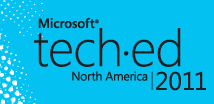| ALM improvements for Visual Studio vNext |
| Written by Kay Ewbank |
| Wednesday, 18 May 2011 |
|
The Visual Studio team has been giving a glimpse into the next version of Visual Studio, or at least the part that's to do with Application Lifestyle Management. The Visual Studio team has been giving some details of what’s happening in the next version of Visual Studio, or at least the part that’s to do with Application Lifestyle Management. The details were released at TechEd 2011, which is currently underway in Atlanta. The most interesting ALM improvements are on linking development and operations, collaboration, and agile planning. Jason Zanders, who gave the keynote at TechEd, commented in a blog post (http://blogs.msdn.com/b/jasonz/archive/2011/05/16/announcing-alm-roadmap-in-visual-studio-vnext-at-teched.aspx) that when Microsoft asked people what the biggest problem they faced in successfully delivering software, they identified the need for better collaboration. There’s a surprise, eh? In response to this, the ALM elements of Visual Studio are designed to overcome these problems. The features in question include Actionable Feedback, which is designed to make feedback appear in a form which is directly applicable to solving the problem at hand. Zanders gives the example that when a tester is providing details of a problem to the developers it should include videos, screen shots, configuration information, and even an IntelliTrace log making it easier to find and fix the root problem. While your initial reaction may well be less than enthusiastic at the thought of watching a video of someone breaking your nice new feature, in reality it at least ought to avoid the situations where the tester is telling you ‘well I clicked a button, no I can’t remember which one, then a bit later it just sort of died’. More directly useful is the announcement of support for continuous testing with the option of using your favorite unit testing framework within the Visual Studio IDE. You’ll be able to use MS Test, xunit, and nunit, and be able to target both .NET and native C++ code. The Visual Studio team has been giving some details of what's happening in the next version of Visual Studio, or at least the part that's to do with Application Lifestyle Management.The details were released at TechEd 2011, which is currently underway in Atlanta. The most interesting ALM improvements are on linking development and operations, collaboration, and agile planning. Jason Zanders, who gave the keynote at TechEd, commented in a blog post that when Microsoft asked people what the biggest problem they faced in successfully delivering software, they identified the need for better collaboration. There's a surprise, eh? In response to this, the ALM elements of Visual Studio vNext are designed to overcome these problems. The features in question include Actionable Feedback, which is designed to make feedback appear in a form which is directly applicable to solving the problem at hand. Zanders gives the example that when a tester is providing details of a problem to the developers it should include videos, screen shots, configuration information, and even an IntelliTrace log making it easier to find and fix the root problem. While your initial reaction may well be less than enthusiastic at the thought of watching a video of someone breaking your nice new feature, in reality it at least ought to avoid the situations where the tester is telling you 'well I clicked a button, no I can't remember which one, then a bit later it just sort of died'. More directly useful is the announcement of support for continuous testing with the option of using your favorite unit testing framework within the Visual Studio IDE. You'll be able to use MS Test, xunit, and nunit, and be able to target both .NET and native C++ code.
Closer integration with System Center is another feature announced at TechEd. You can already use Visual Studio 2010 to set up virtual labs where you test applications on virtual machines. This will be extended with a new connector between System Center and Visual Studio Team Foundation Server (TFS) 2010. The connector lets an operations team take application performance monitoring and diagnostic information gathered by System Center and send it to TFS for immediate attention and "application incident triage by the engineering team", says Zander, with information including the stack trace. There's a Community Technology Preview of this feature that you can try out. Other changes announced include a number of Agile Planning Tools added to the Web Access client for Team Foundation Server. The tools are designed to provide ways to prioritize tasks from those reported by customers; carry out capacity planning to make best use of resources; work out which tasks are actually going to be undertaken next (sprint planning), and track ongoing progress. You can check out the full list of ALM features in this whitepaper.
|
| Last Updated ( Tuesday, 17 May 2011 ) |

